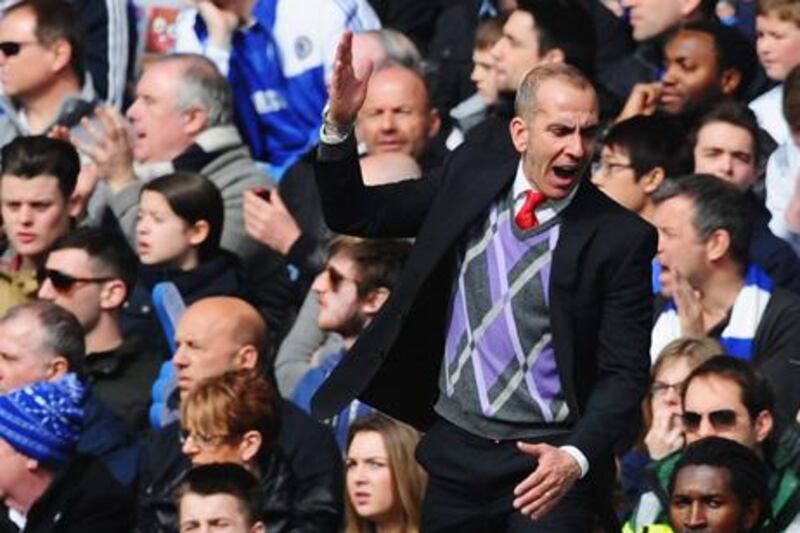Paolo Di Canio's first post-match press conference as Sunderland's manager began with the club's press officer pleading for the media to "be nice". It ended with chaos as she ushered Di Canio away after questions had turned to the familiar topic of his political beliefs.
He had said Chris Powell, with whom he played at Charlton Athletic, would "vouch" for his character and Powell - now Charlton's manager - had refused to do so; what did that mean?
How did his statement renouncing fascism square with his tattoos?
And what was his reaction to the Durham Miners Association's (DMA) letter saying it would not ask for the return of the banner it has on display at the Stadium of Light if the club joined an anti-fascist campaign?
All three were legitimate questions, the last in particular given the links between mining at Sunderland and its support are so strong.
The DMA is a powerful and important community body, and its concerns are particularly relevant given the march by the English Defence League - a political movement that protests against Islamic extremism - in the city two weeks ago.
Impoverished and with an increasing immigrant community, the city of Sunderland, in England's north-east, has been targeted by far-right groups as a potentially rich recruiting ground. It has seen off similar attempts before, most notably after race riots in the northern town of Oldham in 2001, but that is no reason not to be vigilant.
Sunderland speaks of itself as a community club, and has done much positive work in the city; it cannot pretend to exist in a bubble now.
The defence of "we only want to talk about what happens on the pitch" is absurd when football is a cultural mode that pervades so much of British life.
Some of the coverage of Di Canio's appointment, it's true, has been alarmingly quick to judge but the line about being "a fascist not a racist", apparently said in an interview eight years ago, although Di Canio insists it has been taken out of context, at the very least requires explanation.
That is a discussion that has to be had; Di Canio has to explain what he meant and what he thinks. It's true other managers don't face that scrutiny, but other managers haven't given the fascist salute.
It is as though Sunderland still do not recognise what a major issue this is. This is not about being a bit quirky or criticising a referee out of turn, it is about possibly being a fascist: trying to pretend the issue is not there allows it to fester.
Worse than that, it is disingenuous and disrespectful to all those who actually care about the city.
Follow us
[ @SprtNationalUAE ]





